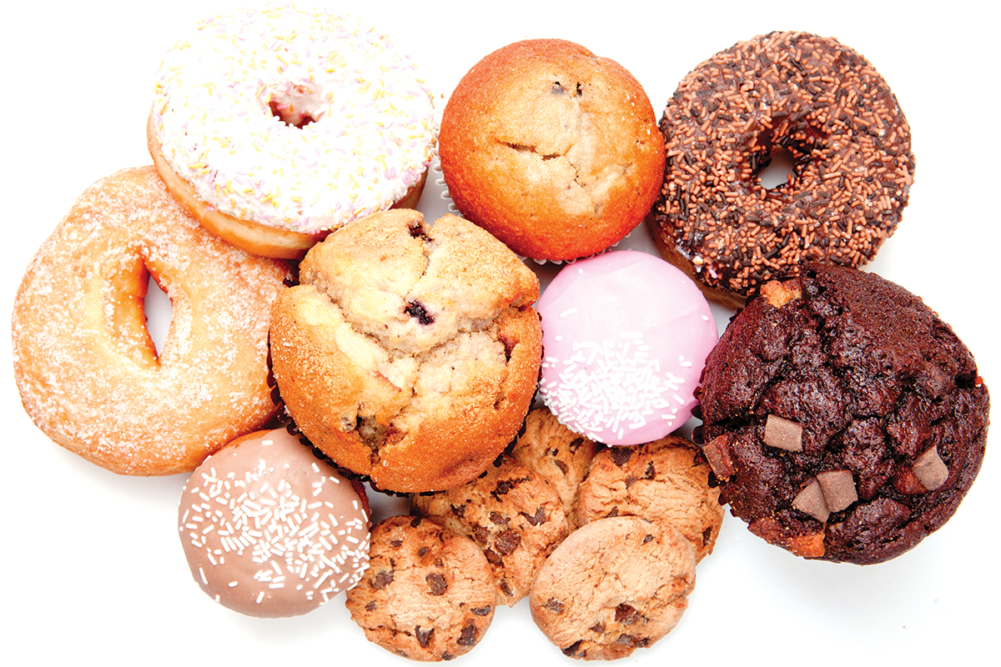Few if any grocery store departments were hit has hard by COVID as instore bakery. People weren’t gathering for big celebrations, so cake sales plummeted. Grab ‘n go donut cases suddenly seemed a lot less hygienic. Countless other examples led to double-digit sales losses for many ISBs.
The pandemic is of course still very much with us, but the “new normal” has kicked in, and ISBs are roaring back to life — though, in some cases, significantly different than their pre-pandemic versions.
The Madison, Wis.-based International Dairy Deli Bakery Association’s (IDDBA) annual show in Atlanta June 5-7 featured a lot of talk about “megatrends” in the industry, said Whitney Atkins, the group’s vice president of marketing.
The instore bakery was affected by all of them, but convenience might be at the top of the list, Atkins said.
“During the pandemic a lot of people were baking at home, trying new recipes. All of that’s great but as we get back to life before pandemic, people are ready for convenience, they’re ready to not cook so much, and that’s a huge opportunity for bakery,” Atkins said.
That could be as something as fresh bread, as all those pandemic sourdough bakers still crave a premium product but may not have the time now to still bake it.
Special occasions are another huge opportunity for the ISB, Atkins said.
“As people come back together, now, more than ever, they’re looking for how to create that experience. How quickly can we shift back to doing what we were doing before the pandemic and grow those opportunities.”
But those special occasions may not be celebrated in the same way. Instead of the sheet cake from the ISB, consumers may be more likely to opt for individually wrapped cupcakes, for instance. It’s more personalized, and in today’s heightened food safety environment, it’s often required — for many kids’ activities, for instance.
Instore bakeries bounce back from COVID, with some changes
The instore bakery has bounced back post-COVID, but it’s not the same department as pre-pandemic, said Marjorie Proctor, marketing and design specialist for Conyers, Ga.-based Dover Food Retail / Hillphoenix.
There were a lot of lessons learned during the past three years, she said, that have morphed into what the industry looks like today.
A few key differences include more self-service displays, both dry and refrigerated, are merchandised with prepackaged bakery items; unpackaged bakery items are behind service glass; refrigerated service cakes are displayed in smaller sizes than three years ago; and shopper’s perceptions of “fresh” and “safe” are much different today than what was perceived pre-pandemic, impacting how food is safely merchandised in today’s bakery department.
Today’s bakery is also heavily impacted by inflation, Proctor added.
With rising prices, consumers recognize that cooking at home is more affordable than eating out, and that gives grocery stores the opportunity to use what they have learned over the past three years to strategically assist consumers with meal options impacting each category of the store, including the bakery with breads and desserts to help make meal planning more appealing and easy for the shopper.
COVID and the ISB
COVID made some big changes in the food industry, and ISBs have been no exceptions. Among the differences between then and now:
- More self-service displays, both dry and refrigerated, are merchandised with prepackaged bakery items.
- Unpackaged bakery items are behind service glass.
- Refrigerated service cakes are displayed in smaller sizes than three years ago.
- A shopper’s perceptions of “fresh” and “safe” are much different today than what was perceived pre-pandemic, impacting how food is safely merchandised in today’s bakery department.
(Source: Marjorie Proctor, Dover/Hillphoenix)
Room to Grow
Before COVID, 38% of consumers were purchasing something from an ISB every shopping trip or nearly every trip. Now it’s just 32%. (Technomic)
Bucking Trends
Despite inflation, dollar sales in bakery are up almost 12% from last year. (IDDBA Marketplace Report)

